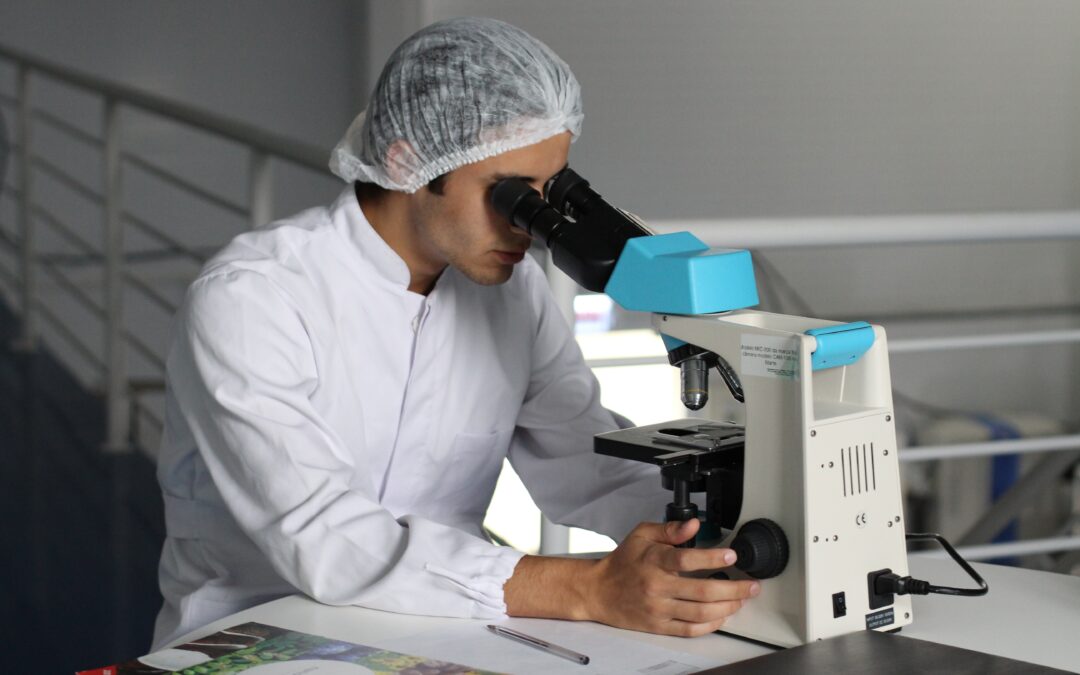Biology is an interesting combination of knowledge and application of the facts to a completely different scenario (and a few exciting labs). Most often, students say they do not like biology for one of the following reasons: they do not understand some ideas, they cannot memorize every detail, they are not comfortable in an experiment or that they cannot figure out how to complete their lab reports. For the most part, these complaints are easily remedied.
One trick we’ve often told our students is to try to understand the concepts covered and not focus too much on the individual facts. Now, this idea works better for the ecology and evolutionary biology section of the course, but it is still an important point. What we mean by this is perfectly summed up by French biologist Jacques Monod “What is true for E. coli is true for the elephant”. Instead of trying to remember something about the specific organism you are studying in class, try to think about what that your teacher is trying to illustrate. It is often the case that teachers do not include the same animal on the test as they would in class. For example, instead of trying to remember why the giraffe has a long neck, consider thinking about what that adaptation has allowed it to achieve. This type of skill will allow you to answer the same question (about adaptation, not necks) for stripes on a fly’s wings, or whichever living creature your teacher decides to put on the test.
Another trick is to try to tell yourself a memorable story about the system you are studying. For example, instead of trying to memorize the correct order of the Krebs Cycle, you can try to create a story about where the molecules went and what happened to them. For example, Acetate went to the gym and sweat a bit (losing water), which caused it to become Cis-Aconitate. Shortly after the gym, Cis-Aconitate went to a restaurant but only ordered a water (gaining a water molecule) and became D-Isocitrate, etc. This can be a much easier way to remember the steps needed in an otherwise complicated cycle. This type of studying tip is, we’ve found, most useful within the cell and biochemistry portion of the course, as this is the part of the course where there will be a lot more memorization than understanding.
Next, the lab experiments that you will do can be a source of anxiety for students, as they are often a completely new experience. The most important thing you can do is to prepare for the lab beforehand. Sometimes, this is not possible, but most often, your teacher will want you to be prepared and will give you the instructions beforehand. This can be as simple as reading over the instructions and knowing the next steps without having to constantly look over your notes. The simple act of reading (and understanding) the procedure can provide you with more time to start writing your lab report, or lowering your level of anxiety.

Helpful Hint
Never write that something “proves” something else in your lab reports. Experimental science can never truly be proven (due to various types of limitations). Even if your teacher has not mentioned this, it is a good idea to stay away from the word, as it can rub your teacher the wrong way.

The lab report is another aspect that most students are uncomfortable with in biology. It can seem like a daunting task to write down everything that you had done and to write about what this shows. The best tip we can provide is to prepare well for the lab before you start writing. The preparation will let you know what to expect when you are actually doing the experiment. It is also very important that you not write about things that did not happen or that you did not see (even though your friends might have said they did), as this can be a signal to your teacher that you did not really pay attention. For example, when drawing cells that you see under a light microscope, you might be tempted to include organelles or parts of a cell that you have seen online (Golgi Apparatus, ribosomes, etc.). However, this is a sure sign to your teacher that you did not understand the lesson and that you were not focused on the experiment. If you were supposed to see something, but didn’t, it is acceptable to make a note of it in your lab report. It can be surprising how often even the simplest experiments do not go as planned!
Even if you think that you will never use biology outside of the classroom, the skills you learn can easily be applied to other subjects or real life situations. For example, the first strategy we’ve outlined here can be a great help in English and History. Often in these courses your teacher would like you to say something interesting about the character or the documents. By teaching yourself how to remember broader concepts, you will be able to apply the same skill to other completely separate subjects. The skills you pick up in preparing for a lab experiment can easily be transferred to everyday things like cooking or help with improving time management.
With biology, students often encounter setbacks when trying to remember all of the minute details for a test. By training yourself to think about what the teacher was trying to illustrate with that example instead of focusing on it, you can save yourself a lot of time and effort. By creating a story of a complex concept, you can make a mental shortcut to help you recall the correct steps. For lab experiments, generally, our best tip is to come prepared to the lesson and to try to focus on what is in front of you rather than on the lab report. This way, you can easily write about it after. In addition, the skills you learn in biology can be applied to other subjects. When overcoming some small obstacles, biology can quickly become a lot of fun and can help you improve in other courses.

